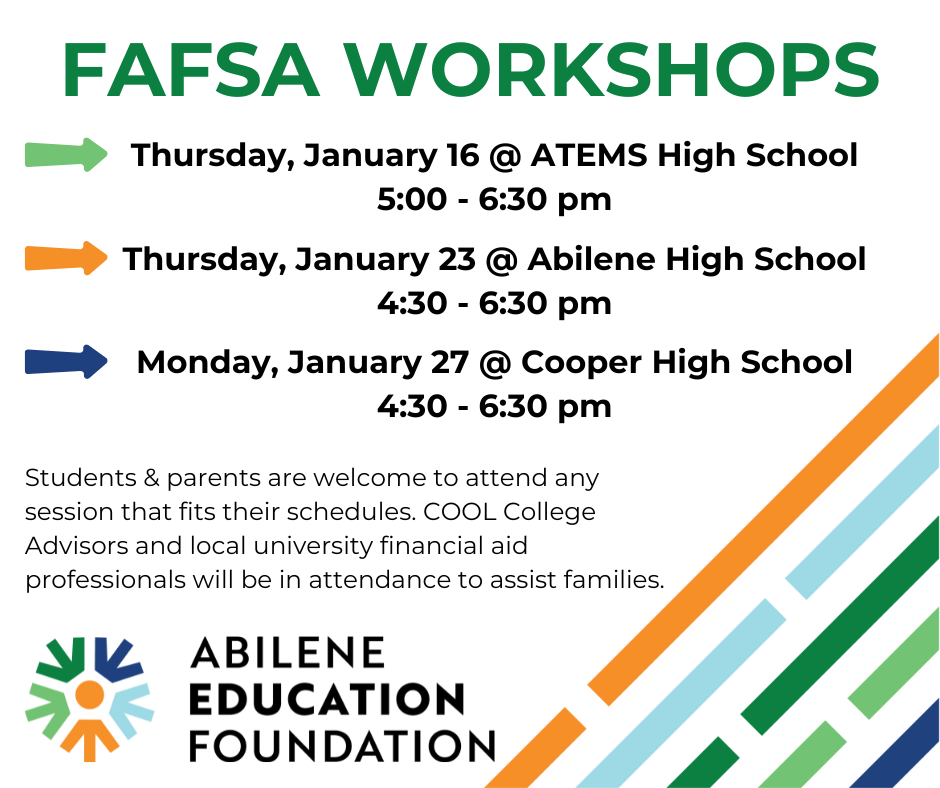
Anyone in the community is welcome to attend either of these events and find out how to receive the most out of your Financial Aid package.
In the meantime, use these tips to prepare for the upcoming FAFSA:
Quick Tips for Filing Your FAFSA
Identify Yourself
- Use your legal name as it appears on your Social Security card. Nicknames or aliases will cause a processing delay.
- Read the questions carefully. The words “you” and “your” on the FAFSA always refer to the student, not the parents.
- To be considered a veteran, you must have served on active duty and been discharged under other than dishonorable conditions. If your service was only for training purposes (e.g. National Guard or Reserves, orROTC), you are not considered a veteran for your federal financial aid application.
- Remember to count yourself, the student, as one of the people in your household who will be a college student during the award year.
Your Parents and the FAFSA
- If your parents are divorced or separated, the parent with whom you lived the most during the past 12 months is the parent responsible for filling out the FAFSA. This is not necessarily the parent who has legal custody.
- If the parent responsible for completing the FAFSA has remarried, the new spouse must report their income and assets on the FAFSA. Prenuptial agreements have no bearing on this requirement.
Your Dependents
- A legal dependent is a person for whom you provide and will continue to provide more than half of their support. Support includes money, gifts, loans, housing, food, clothing, automobile, medical and dental care, and payment of college costs. If you have a child who is supported by your parents or someone else, you should answer “no” to the question that asks about legal dependents other than a spouse.
- If you have an unborn child who will be born before or during the award year (July 1 through June 30) and will be your legal dependent, that child should be counted as a member of the household.
Given the Option
- In the question that asks about your interest in different types of aid (e.g. work-study and student loans), answer “yes” to each question. Answering “yes” does not obligate you to accept a loan or work-study position, nor does it guarantee you’ll be offered either. Answering “no” to these questions will not get you more grant aid.
- Even if you qualify for the simplified needs test, you should still complete the asset information section of the FAFSA. Some states and schools use this information for computing their own financial aid awards.
- By submitting the FAFSA, you give permission to release your information to the state aid agency. You cannot apply for financial aid without releasing this information.
What Counts as Income?
- The Earned Income Credit is considered “untaxed income” on the FAFSA. Other types of untaxed income include retirement plan contributions made during the year and military food and housing allowances.
- Taxable earnings from work-study jobs as well as any grant or scholarship monies that were reported on your income tax return are counted.
- Prepaid tuition plans should be reported as assets on the FAFSA.
-Courtesy of Mike Pugh and FastWeb